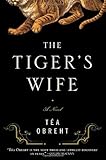 History of the Rain: A Novel by Niall Williams
My rating: 5 of 5 stars
History of the Rain: A Novel by Niall Williams
My rating: 5 of 5 stars
A novel of beauty and grace, showing again that Niall Williams is more than a writer, he is a composer who elicits music from the magical combination of letters we know as words.
Young Ruth Swain has returned home from university to convalesce in her attic bedroom, where the rain of Co. Clare pours ceaselessly on the two windows above her head, and three thousand, nine hundred and fifty-eight volumes of classic prose and poetry surround her in teetering stacks. Her father is gone and Ruth seeks him, his history, and his truth, in the vast library he left behind. Her clear, funny, and poignant voice guides us through misty decades of Swain and MacCarroll family lore to illuminate how her father, Virgil, and her mother, Mary, came to farm the worst fourteen acres of land in Ireland.
The reminders of present-day Ireland—references to the Crash, the internet, Marty in the Morning on RTE's Lyric FM—jolted me out of the dreamlike meanderings in a timeless world, casting a surreal glow over this rain-sodden ode to Ireland, literature, and love. But the anachronisms make the story more bewitching; Williams shows us that even in this hyper-connected world, it is possible to escape. And the greatest escape is found in the pages of a book.
This is a book to savor, slowly and delicately. It pokes gentle, meta, self-mocking fun at the conventions of novel structure. If you are a reader who expects tidy packages of chronological storytelling, plot points, and story arcs, give this a try. You might be surprised what beauty can be woven outside the confines of the Fiction 101 blogosphere. And read with a notebook by your side, because you'll want to make note of each volume Ruth references in her vast library—it's a primer on Western literature's greatest works of poetry and prose. Tissues would be good, too. I reckon you won't make it through this with dry eyes.
Tied up in my delight with History of the Rain is my love for Ireland, particularly the west. Williams, as he always does, captures this incomparable spirit, the particular state of longing that I feel when I am in Ireland, or just thinking about being there:
We're a race of elsewhere people. That's what makes us the best saints and the best poets and the best musicians and the world's worst bankers. ...It's in the eyes. The idea of a better home. Some of us have it worse than others. My father had it running in the rivers of him.
Let this river of words take you away. But be forewarned: you won't want to return.





